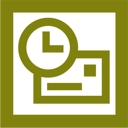Back to all events
The workshop presents a framework for how and why anxiety develops in children and adolescents, and provides practical diagnostic and treatment strategies that can be applied immediately by therapists, health care providers and education professionals in their various settings. The new DSM-5 classification of anxiety will be used as a field guide to a journey through the key anxiety disorders with emphasis on diagnosis and effective interventions involving insight-oriented, cognitive-behavioral, somatic, mindfulness, play therapy, expressive arts, and family systems approaches. The following anxiety disorders will be addressed: separation anxiety disorder, panic disorder with agoraphobia, generalized anxiety disorder, obsessive-compulsive disorders including trichotillomania (hair pulling) and excoriation (skin picking), social anxiety disorder (including selective mutism), phobias, and post-traumatic stress disorders. Participants will have opportunities to present their own cases for feedback and treatment suggestions.
Attending this workshop will boost your confidence in working with young clients suffering from a continuum of anxiety manifestations, as well as their parents and others such as teachers, school nurses and education administrators. Leave with an expanded repertoire of tools and techniques. A workshop packet will include handouts for clients and written instructions for the therapeutic techniques demonstrated in the workshop.
Learning activities will consist of lecture, PowerPoint presentation, demonstrations, video clips of Dr. Foxman’s work, experiential exercises, and discussion.
Event Name
Anxiety Disorders in Children and Adolescents: Recognizing and Treating the Emerging Epidemic
Course/Workshop
For: Professionals
Provided by: Jack Hirose & Associates
Date and Time
Thu Oct 30 to Fri Oct 31, 2014
(This event is over)
9:00 - 4:00pm
Event Description
Anxiety is now recognized as the most common emotional problem in 16 of 17 countries surveyed recently by the World Health Organization. The soaring trend towards anxiety has been accelerated by global events such as such as terrorism and violence, natural disasters, economic stress and other threats to security. Children today are exposed to daily stresses including excessive homework, information overload, standardized achievement tests, bullying, violent video games, and premature sexuality. Additionally, many are experiencing the trauma of destabilizing divorce, negligence and abuse. Some experts have identified a “shell shocked” generation of children suffering from anxiety in many cases. Our challenge is to recognize anxiety in children and help them cope.The workshop presents a framework for how and why anxiety develops in children and adolescents, and provides practical diagnostic and treatment strategies that can be applied immediately by therapists, health care providers and education professionals in their various settings. The new DSM-5 classification of anxiety will be used as a field guide to a journey through the key anxiety disorders with emphasis on diagnosis and effective interventions involving insight-oriented, cognitive-behavioral, somatic, mindfulness, play therapy, expressive arts, and family systems approaches. The following anxiety disorders will be addressed: separation anxiety disorder, panic disorder with agoraphobia, generalized anxiety disorder, obsessive-compulsive disorders including trichotillomania (hair pulling) and excoriation (skin picking), social anxiety disorder (including selective mutism), phobias, and post-traumatic stress disorders. Participants will have opportunities to present their own cases for feedback and treatment suggestions.
Attending this workshop will boost your confidence in working with young clients suffering from a continuum of anxiety manifestations, as well as their parents and others such as teachers, school nurses and education administrators. Leave with an expanded repertoire of tools and techniques. A workshop packet will include handouts for clients and written instructions for the therapeutic techniques demonstrated in the workshop.
Learning activities will consist of lecture, PowerPoint presentation, demonstrations, video clips of Dr. Foxman’s work, experiential exercises, and discussion.
Disclaimer
Events are posted as a free service to the community, however, please note that posting does not imply any
endorsement or recommendation of a specific event or organization. Events are posted in the language in
which they are received.
This event is listed under these topics
Last modified Jul 15, 2014 10:09am







